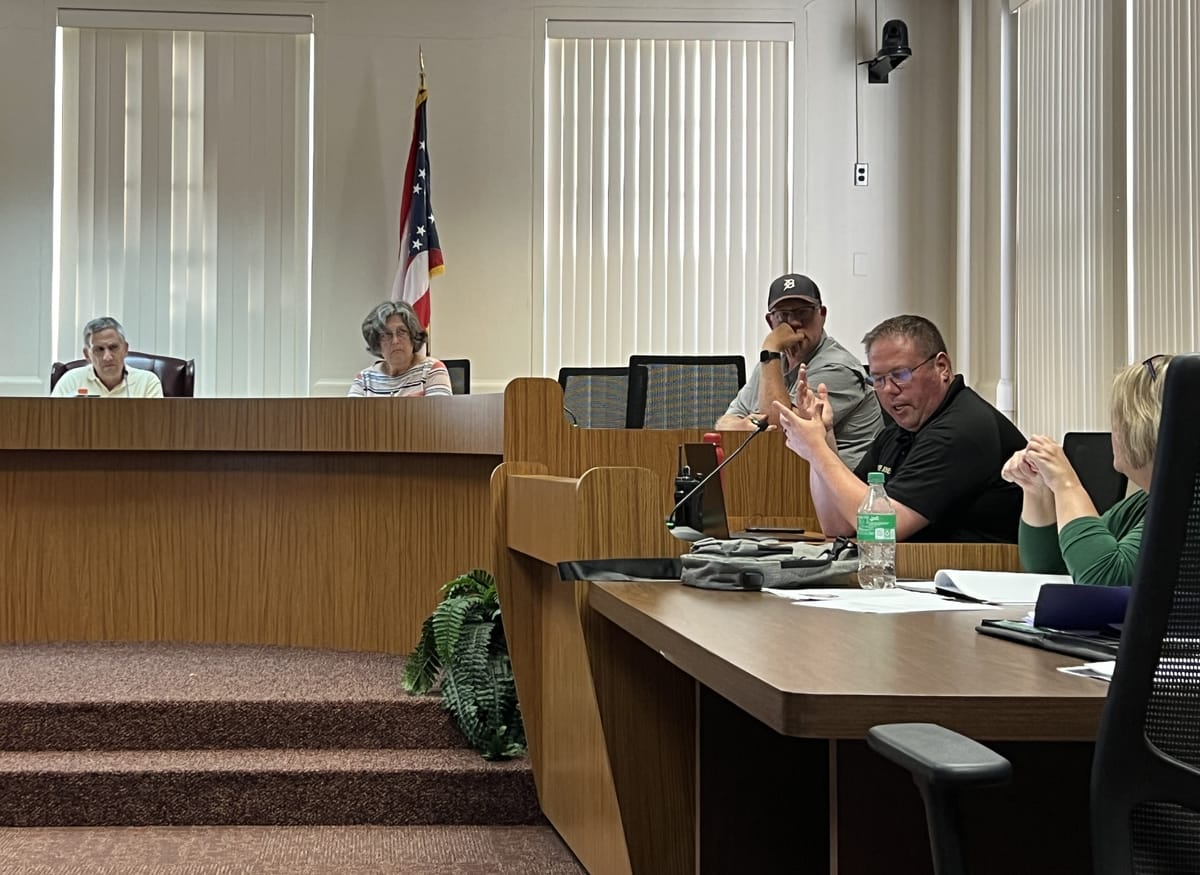Oxford police commission considers solutions after use of force incident

Following a use of force incident last November, the Oxford Police Department is considering new tracking software to keep track of similar incidents in the future.
At Oxford’s Police Community Relations and Review Commission (PCRRC) meeting June 6, members of the commission and the public considered a number of suggestions for OPD to improve its preparedness and response to use of force incidents. Last November, an officer used force to arrest a Miami University student, and security footage of the incident later circulated online and prompted an investigation.
While the investigation found that the use of force was justified, OPD Chief John Jones said the incident exposed communications issues within the department. Use of force incidents are currently tracked on paper, Jones said, and supervisors may not immediately be aware when they happen.
Jones recommended that the PCRRC endorse his plan to purchase Frontline Public Safety Solutions’ Pro Standards Tracker, an incident tracking software, for $9,975 per year to help track use of force incidents digitally.
“We’re a small department, but I think through this incident we’ve found [that] sometimes things get mishandled,” Jones said. “This might be something that can be helpful to us.”
The tracker works by having officers enter data on each incident including type of force used, location, reason and more. The system provides departments with real-time statistics about use of force incidents and includes an “early intervention alerting system” which notifies supervisors when officers have been involved in multiple incidents, complaints and disciplinary actions.
While the PCRRC can’t approve funding itself, committee chair Larry Nadler said it can make formal recommendations to city council. The board voted unanimously to recommend the software purchase.
OPD will also update its training to put more emphasis on defensive tactics in response to the November incident. Jones said the department’s current training focuses on response to active shooters rather than “ground fighting” which may lead to officers using force.
“When you don’t practice those skills, you lose them,” Jones said. “So when you lose control of a situation, you have to use a higher level of force versus if you’re more proficient in our tactics, you might be able to resolve something very quickly.”
The department’s updated training will include a “legally competent, tactically confident” module this year to help officers understand the law around use of force. In future years, Jones hopes to add a class about how to avoid use of force incidents even when legally justified.
Other suggestions from members of the public at a previous PCRRC meeting included holding more frequent small group meetings with several committees to discuss bias in policing, not allowing officers involved in altercation to collect evidence regarding those incidents, considering improved body cameras and limiting qualified immunity. By the end of the June 6 meeting, the PCRRC decided not to officially recommend any of these actions, but it will bring them to city council to consider.
Ann Fuehrer, secretary of the Oxford NAACP, said at the meeting that the PCRRC should take an active role in communicating its position and response on high-profile issues like the November use of force incident. She approved of the software and training updates, as well as more community discussions, but said there should also be more focus on the city’s relationship with Miami.
“I believe this is about some of the problems with a lack of what I perceive to be a really collaborative relation between the city and the university in dealing with things like underage drinking or student entitlement because of the policies of local businesses,” Fuehrer said. The student involved in the November incident was found guilty of misdemeanor resisting arrest and assault, but the jury found him not guilty of underage intoxication and failed to reach a verdict on criminal trespassing.
City Manager Doug Elliott said the PCRRC functioned as intended in this case by providing an official place for lengthy discussions, and getting other committees involved may not be as beneficial as working with nongovernmental groups.
“Government can’t solve all the problems,” Elliott said. “... As far as bringing all these boards and commissioners together, I’m not sure that that would work. I’m not sure what the agenda would be.”
Amber Franklin, a city councilor who attended the PCRRC meeting, said local organizations like the Interfaith Center could help facilitate small group conversations instead of government committees. The PCRRC made no decision on whether to recommend small group conversations, but it will mention the discussion in an official report to city council.




